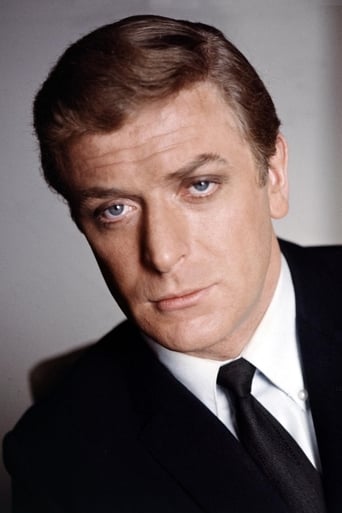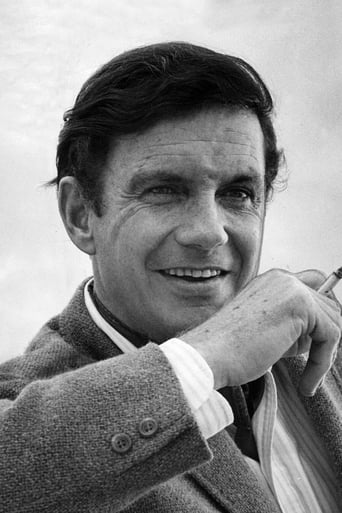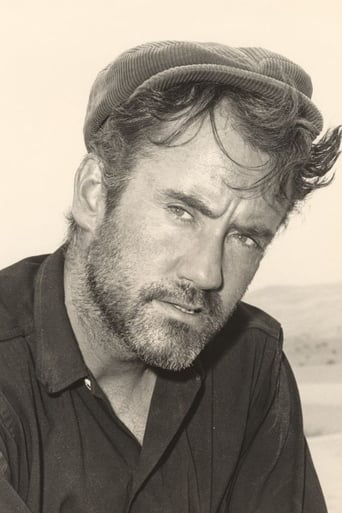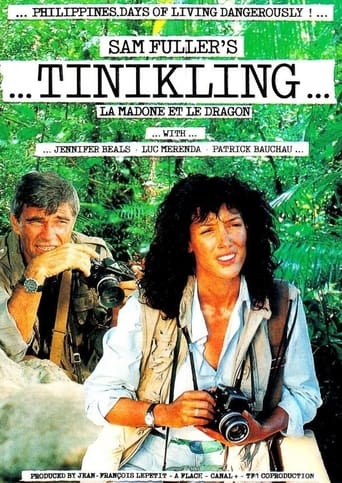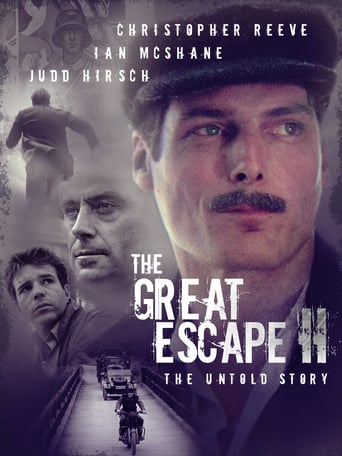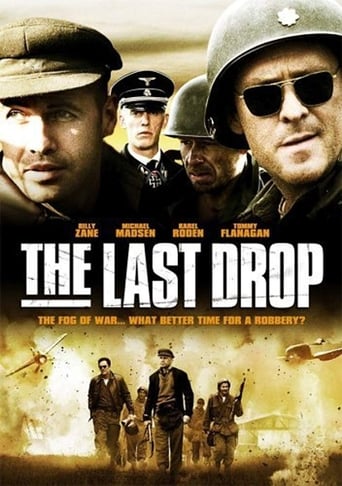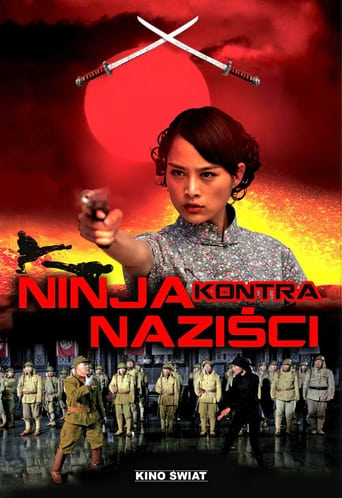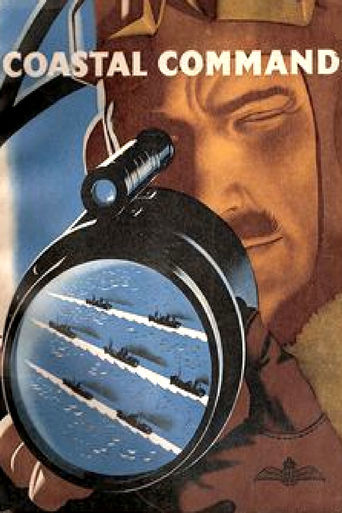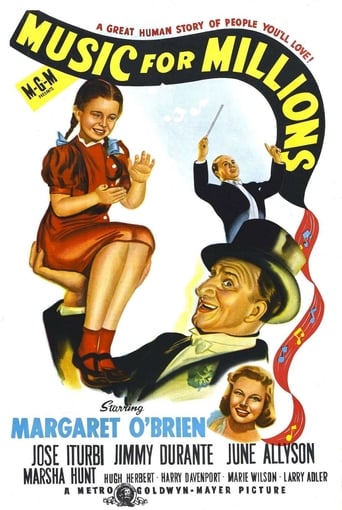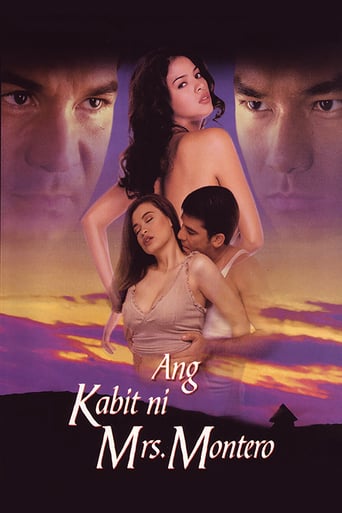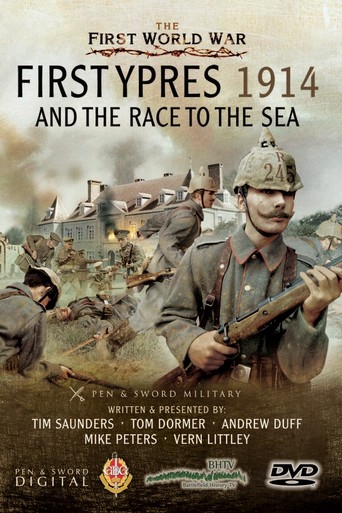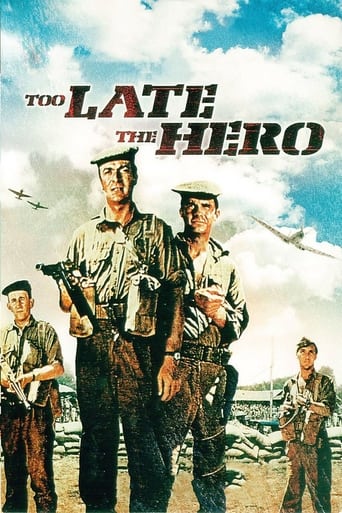
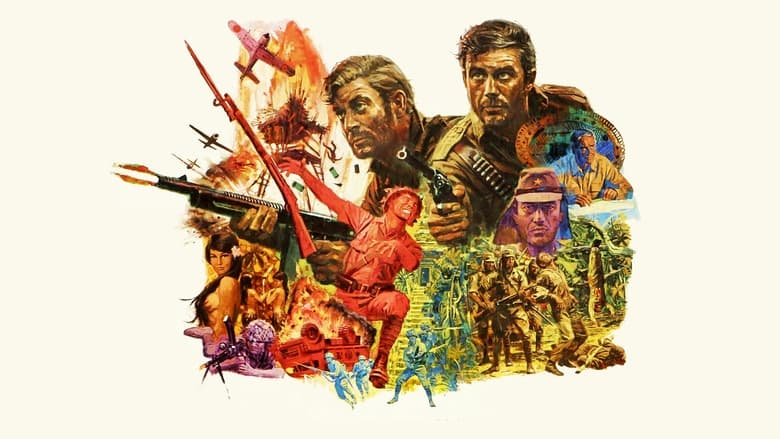
Too Late the Hero (1970)
A WWII film set on a Pacific island. Japanese and allied forces occupy different parts of the island. When a group of British soldiers are sent on a mission behind enemy lines, things don't go exactly to plan. This film differs in that some of the 'heroes' are very reluctant, but they come good when they are pursued by the Japanese who are determined to prevent them returning to base.
Watch Trailer
Cast


Similar titles
Reviews
Excellent but underrated film
The thing I enjoyed most about the film is the fact that it doesn't shy away from being a super-sized-cliche;
Although I seem to have had higher expectations than I thought, the movie is super entertaining.
It is an exhilarating, distressing, funny and profound film, with one of the more memorable film scores in years,
This film is movie fiction of the lowest order. Who are these ragtag British soldiers? Certainly not escapees from Singapore as one of them stated. Singapore fell when the whole garrison surrendered, many KIA, out of food, water and ammunition, and there was no Dunkirk. Lt.j.g. Lawson (Robertson) speaks to a naval Captain (Fonda) with first-name disrespect? Give me a break. The script writers knew nothing about tactics, jungle patrols or the British Army. These were not conscripts, but regulars, and their insubordinate behavior was probably more like the US troops in Vietnam. Wearing balmorals and forage hats in a war zone? Not a chance. Weapons? The Brits had Lee Enfield .303s, Bren and Sten guns as personal arms, in TLTH they all seem to have M16s, an American automatic rifle not available till the 1960s. That out-of-range British line was so ridiculous it was funny, and the ad line "They could save thousands or themselves" gives you the impression that they were going to be noble heroes, when in truth they didn't accomplish either one. Despite the hackneyed script the actors did remarkably well. Director Aldrich was petty not to allow Cliff Robertson time enough away to attend the Academy Awards ceremony to collect his Oscar for Charly.
The Cliff Robertson & Michael Caine World War II epic "Too Late the Hero" qualifies as another searing indictment of warfare. Producer & director Robert Aldrich recaptures some of the flavor of "The Dirty Dozen." Each film takes place against the backdrop of World War II. "The Dirty Dozen" occurred in Nazi-occupied France, while "Too Late the Hero" happens in the Japanese controlled South Pacific in spring 1942. Each group of warriors performs a special mission. The American military convicts in "The Dirty Dozen" received pardon offers to participate in combat. The British soldiers in "Too Late the Hero" aren't exactly convicts, but they aren't elite troops. Although it never coined the millions that "The Dirty Dozen" grossed at the box office, "Too Late the Hero" has ten times the depth and irony in its story-line than "The Dirty Dozen." Conversely, "The Dirty Dozen" is far more entertaining on a visceral level, while "Too Late the Hero" becomes terribly depressing until the final run across open ground with mortar teams lobbing shells and snipers blasting away nonstop as the brave Allied souls struggle to cross it. The ending is this movie's chief surprise. While "The Dirty Dozen" destroyed a château crowded with high-ranking German officers, the men in "Too Late the Hero" only blow up a radio transmitter. Nevertheless, the performances are flawless, and the characters are genuinely interesting. You'll recognize several familiar British faces, such as lantern-jawed Harry Andrews, Percy Herbert, Denholm Elliot, Ian Bannen, and Ronald Fraser, from other World War II movies.Oscar-winning actor Cliff Robertson of "Charly" plays U.S. Navy Lieutenant (J.G.) Sam Lawson who has an easy job eavesdropping on Japanese radio chatter and interpreting it. Lawson is nowhere near combat, until his Commanding Officer, Captain John G. Nolan (Henry Fonda), assigns him to a British commando team dispatched to blow up a radar station in the New Hebrides east of Australia. After an interesting opening sequence that features British, American, and Japanese flags disintegrating slowly as they flap in the breeze, the action shifts to a quiet U.S. Naval base in the South Pacific as the Shore Patrol searches for the elusive Lawson. They find him and escort him to Nolan. Lawson has been planning a four week leave and news that he is about to embark on a combat mission horrifies him. "This is something the British are organizing for us that involves a certain amount of physical hardship," Nolan brusquely informs him. Initially, Robertson believes that if he resigns his commission then he can get out of being sent on the mission because the British need an officer. Nolan is prepared to send him on the mission as an ordinary seaman if Lawson resigns. "I can't win, can I?" Lawson reluctantly accepts the mission. Clearly, "Too Late the Hero" couldn't have been made during World War II when war movies were hopelessly patriotic.The British plan cross the island to the north and destroy the Japanese radio so the enemy cannot wire a nearby island and request air support to bomb a U.S. Navy convoy which will pass near the radio camp on the coastline. Just before our heroes are to raid the Japanese camp and knock out the transmitter, the British soldier carrying their radio drops it by accident and permanently damages it so it no longer works. Predictably, Hornsby reacts with rage, but improvises another plan. They will overpower the Japanese radio operator and transmit their false message on the Japanese radio and then destroy it. Lawson refuses to follow Hornsby into the radio hut because he believes Hornsby is violating Colonel Thompson's specific orders. Earlier, Hornsby had exemplified the incompetent commander he was when he laid an ambush with his men on both sides of a column of advancing Japanese and five of his men died in the cross-fire from their own men. Once they reach the Japanese camp, he improvises rather well, but dies when Lawson refuses to participate in Hornsby's new scheme to relay the false message by the Japanese transmitter rather than their own transmitter. A battle breaks out and our heroes mow down their share of Japanese troops before they pull back. Accidentally, the next day, our heroes stumble onto a Japanese airfield that has been so well camouflaged that U.S. aerial reconnaissance hasn't spotted it. Our heroes flee but this time they are pursued by a Japanese officer who deploys speakers to try to lure them back to him so word will not reach enemy lines about the presence of their hidden airfield. Our heroes must now survive long enough to get back to base and inform Colonel Thompson about the enemy airfield.Producer & director Robert Aldrich co-wrote the story with Robert Sherman and the script with Lukas Heller. Although "Too Late the Hero" takes place in World War II, the film undoubtedly reflects the contemporary dislike for the Vietnam War. Ninety percent of the action occurs in the jungle and Aldrich gives the jungle a claustrophobic nature. Between the opening and ending no-man's land scenes, "Too Late the Hero" encloses the audience within high green walls. Once Lawson arrives at the British camp, he meets the camp commandant, Colonel Thompson (Harry Andrews of "633 Squadron"), and Captain Hornsby (Denholm Elliot), who will lead the mission, but none of Hornsby's men respect him. Hornsby is as worthless an officer as you can imagine, but he commands troops almost as worthless as he is. Indeed, Hornsby is taken aback by Lawson's negative attitude when he first meets him. "What an extraordinary fellow," Hornsby observes of Lawson. Colonel Thompson retorts, "Well, he's an American." Thompson then inquires about Hornsby's health and if he is up to commanding the mission. "It seems to me to be a marvelous opportunity to really hurt them," Hornsby replies to Thompson. Again, "Too Late the Hero" is as cynical a war movie as you will find.
This taut war film is set during spring 1942 WWII, a superior officer(Henry Fonda) assigns a reluctant American lieutenant (Clift Robertson) a dangerous mission in island of New Hebridas . At the island of Pacific , British military rule over the South region, while Japanese govern the North part . The goal of US Navy turns out to be the occupying the Japanese zone . For getting the objective is necessary destroying a radio station from Japanese . The lieutenant goes to the regiment commanded by a colonel (Harry Andrews) joining forces for participate the suicidal mission . It's formed a commando under orders a captain (Denholm Elliott) and a motley gang of soldiers released after fall of Singapur , as a tough sergeant (Percy Herbert who was actually a prisoner of the Japanese Army in The Second World War) , a mad soldier (Ian Bannen), a despicable private (Ronald Frazer) , among them.This exciting war movie contains thrills , noisy action , rousing adventure , tension , lots of violence and twists and turns . Well made plot is based on a story by Robert Sherman and the same director Robert Aldrich . The powerful Aldrich camera crams in as much shock impact as possible . The picture kept afloat by the skills of their all-star cast formed by largely British actors . Michael Caine as a cynical soldier sustains and compels interest by careful concentration on his acting with cockney accent . Clift Robertson as lieutenant avoiding patriotism , gives a good performance , as always . There're strong portrayals by Ronald Fraser as a rogue private and Ken Takakura as Japanese officer . Thrilling and suspenseful musical score by musician Gerard Fried, Stanley Kubrik's usual . Nice cinematography by Joseph Biroc reflecting appropriately the lush jungle . Tense and brilliant direction by Robert Aldrich , a warlike (Dirty Dozen,Attack) and Western (Ulzana's raid , Apache , Veracruz) expert . It's a must see and a standout in its genre .
TLTH is a solid war movie made in a time devoid of Tom Cruises, Di Crapios and other mattodamonic Bennaffleckians. Caine and Robertson look like men, not wimpy little effeminate preppies which we're served and rammed down our throats en masse nowadays. Michael Caine participated in the Korean war as a soldier, while Denholm Elliot spent several years as a Japanese P.O.W. in WW II; what's the toughest ordeal Casey Affleck ever had to go through? A broken nail? And it partially shows on screen, of course.The main drawback is the length; I saw no reason for this plot to use up over 2 hours of screen time. A minor problem was the occasional mumbling.One of the things I liked here is that there was a more realistic way of looking at World War II. In recent decades we've had U.S. liberals and other clueless Leftists tell us how "valid" and "noble" that war was, as opposed to other wars that came later, that were supposedly totally immoral, unclean, nasty and vile. However, there is no such thing as a "pure" or "sanitized" war. The lack of discipline, morality and even courage among some of the British troops in this film is a refreshing break from the kind of silly over-glorification of WW II - especially the way this stands in contrast to the over-vilification of wars fought by America in the decades after that.Judging by Caine's memories (from his autobiography) related to filming TLTH, a documentary on the making of the film would have been fascinating to watch.


